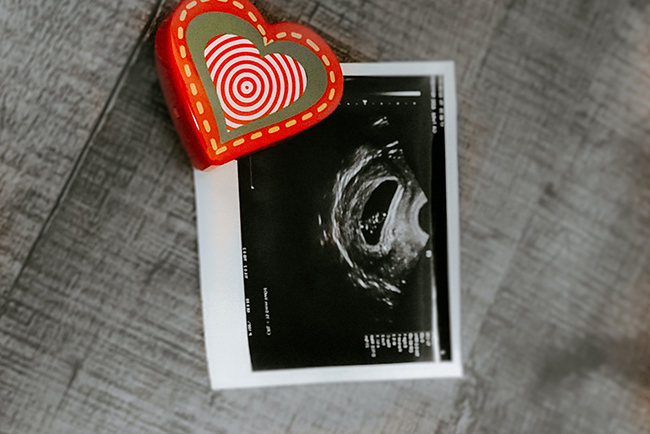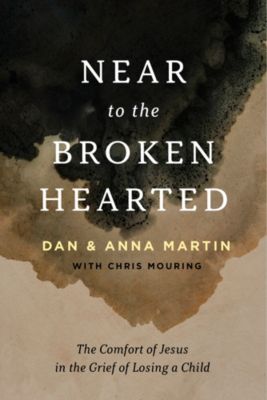
Caring well for women and families begins with listening. Here are six things women wish you knew about pregnancy loss.
By Mary Holloman
Editor’s note: October is Pregnancy and Infant Loss Awareness Month.
“You already have children? Oh, you’ll be fine.”
I barely registered the needle sliding into my vein as the nurse’s words echoed around the empty room. She slapped a label onto a tube of my blood and smiled. “You’ll be fine,” she repeated.
Moments later a receptionist slid a faded photocopy across the desk (“How to Manage Your Miscarriage”), reminded me the bill for my lab work was forthcoming, and turned her attention to the woman behind me.
I glanced at the printout. The words swam. My throat burned. I found my way to the car, rested my head on the steering wheel, and cried.
The overwhelming majority of my brothers and sisters in Christ cared for me so well during that difficult time. However, I was shocked at the number of insensitive comments and platitudes I received from others—an experience I share with thousands of women who have walked through pregnancy loss. Four years later, I still can’t decide what hurt worse: the relentless chatter (“You’ll get pregnant again;” “You’re fine;” “At least it happened early;” “At least you weren’t attached yet”) or the deafening silence.
Is it more painful to have your grief minimized or ignored entirely? Both cut like a knife. And both reflect the stigma surrounding this difficult topic.
I write these words from a place of deep sadness, but also trepidation. Sadness, because I’ve said goodbye to three babies, and it’s forever changed my life. Trepidation, because I am one woman—not every woman. Every story is different, every life unique.
The impact on women
But over the years, I’ve noticed common themes that surface for women who have experienced pregnancy loss. And while research on this topic is scarce, what does exist points to the truth that women are lonely and hurting.
Studies suggest as many as 1 in 5 known pregnancies end in pregnancy loss (often referred to as “miscarriage” or even “spontaneous abortion”). Research also shows women who lose a pregnancy are at increased risk for depression, anxiety, alcohol dependence, and suicide. Another study found as many as 1 in 3 women develop short-term PTSD. And 1 in 5 develop long-term PTSD after pregnancy loss.
1 in 5 known pregnancies end in pregnancy loss and women who lose a pregnancy are at increased risk for depression, anxiety, alcohol dependence, and suicide. Click To TweetIf women in your congregation are wrestling with the physical, emotional, and psychological trauma of pregnancy loss, what should the church’s response be? How can leaders minister to hurting parents and honor the lives of their unborn children?
Caring well for women and families begins with listening. Here are six things women wish you knew about pregnancy loss:
1. We want to hear about pregnancy loss from the pulpit
When church leaders speak about pregnancy loss, they validate a woman’s grief and chip away at the stigma surrounding this painful issue. But if unborn life is addressed from the pulpit, it’s often in relation to abortion on Sanctity of Life Sunday. Many churches offer abortion recovery support groups or memorial services, which is wonderful. But is there any structure in place at your church to love women experiencing pregnancy loss? If not, women are left feeling as if life is valued only in certain circumstances or when the topic is culturally relevant.
When there is more conversation about pregnancy loss in the church, women will feel safer coming to the church. When women feel safer, they will speak more about their experiences.
2. We are deeply hurt by the words “at least”
Because pregnancy loss makes many uncomfortable, the knee-jerk reaction is to make the tragedy appear less tragic. “At least it happened early” tells the mother her child’s death isn’t as heartbreaking because her child was less developed. “At least you already have children” tells the mother her unborn child was not a distinct individual; therefore, her grief isn’t necessary. These words are spoken not to comfort the mother, but to make the speaker feel better. Other phrases that can be hurtful are:
- It’s for the best.
- There must have been something wrong with the baby.
- You can always have another.
- What went wrong?
When ministering to women and families who are hurting, consider leading with these phrases instead:
- I’m so sorry.
- This is not your fault.
- I will miss getting to meet your baby.
- I don’t know what to say.
- I’m here for you.
- How can I help you?
3. We struggle with guilt and the lack of answers
A national survey of public perceptions of miscarriage found nearly half the respondents (47%) experienced feelings of guilt after a pregnancy loss. More than 2 in 5 (41%) believed they had done something wrong, and nearly 3 in 10 (28%) felt ashamed.
And while research tells us nearly all miscarriages happen outside the control of a mother, other studies show the majority of the general public believes pregnancy loss to be the direct result of a mother’s actions. These misconceptions can further isolate women who already struggle with a lack of definitive answers.
4. We are so grateful when others check in
A text, a call, a conversation over coffee, or a quick word in the hallway at church—every time a person asks how we’re doing, we are reminded we are seen and not alone.
5. We wish resources were easier to access
In the midst of grief, it’s difficult to know where to look for quality books, podcasts, articles, or counseling. Consider creating a safe space where women can find a list with a variety of resources related to grief after pregnancy loss. This could be as simple as creating a page on your church’s website with quick links to trusted resources. If you’re not sure where to start, talk with women in your congregation and ask what content was helpful to them. Consider contacting your local pregnancy center, hospital, or OBGYN offices to utilize what they already have.
6. We will never be the same—and that’s OK
Our stories are filled with silent doctors’ offices, emergency surgeries, and ultrasound pictures tucked away in boxes. Strained marriages, tear-filled therapy sessions, and recurring nightmares. Empty-handed due dates, cribs we no longer need, and carefully chosen names we speak only in our hearts. We see the world differently now. Grief does that to a person. And sometimes—no, always—God uses our grief to minister to others (2 Corinthians 1:1-11). So look for ways you can connect us with other hurting women. Let us tell our stories, deliver a meal, or sit quietly beside a woman who is walking through loss.
A safe place for women
During my 10 years working at a pregnancy resource center, one thing we said all the time was that the church should be the safest place for a woman facing an unplanned pregnancy. I would argue that the same should be true for a woman who experiences a pregnancy loss.
“The church should be the safest place for a woman facing an unplanned pregnancy. The same should be true for a woman who experiences a pregnancy loss.” — @mtholloman Click To TweetEvery image bearer is created fearfully and wonderfully. So when an unborn child’s life ends in the womb, it is right to grieve. And it is right to care for the mother.
The world says to a hurting woman, “You’ll be fine. Dry your tears.”
But the church says, “You’re not fine. Let me cry with you.”
And then, through tears, guides her to the Savior who is close to the brokenhearted, who saves the crushed in spirit, and who heals the deepest wounds.
For permission to republish this article, contact Marissa Postell Sullivan.

Mary Holloman
Mary writes for a variety of publications, some of her favorite topics being parenthood, pregnancy, and the value of life. She has contributed to numerous books, and her debut children’s picture book, The Anxious Lily (End Game Press), released in early 2023. She and her husband have three beautiful children.










